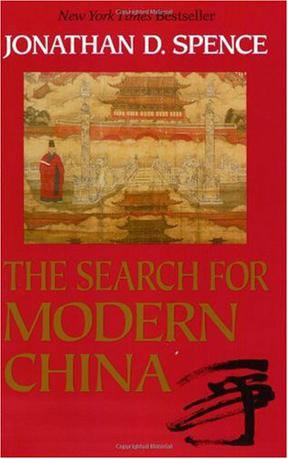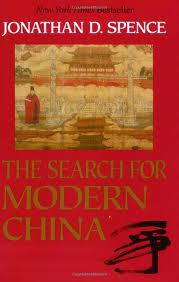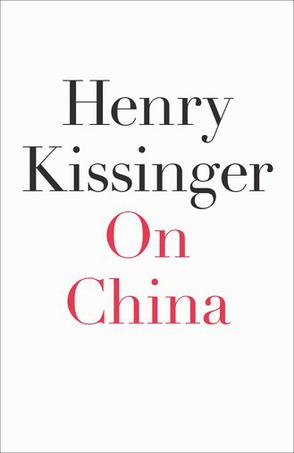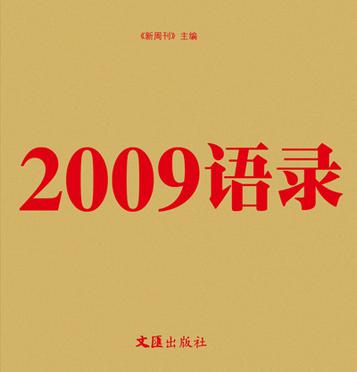-

The Search for Modern China
"A remarkable achievement...vivid...fluent, graceful.... A publishing event."—Boston Globe In this widely acclaimed history of modern China, Jonathan Spence achieves a fine blend of narrative richness and efficiency. Praised as "a miracle of readability and scholarly authority," (Jonathan Mirsky) The Search for Modern China offers a matchless introduction to China's history. -

The Search for Modern China
-

Modern China
China today is never out of the news: from human rights controversies and the continued legacy of Tiananmen Square, to global coverage of the Beijing Olympics, and the Chinese "economic miracle." It is a country of contradictions and transitions: a peasant society with some of the world's most futuristic cities, an ancient civilization that is modernizing as rapidly as possible, a walled-off nation that is increasingly at the center of world trade. This Very Short Introduction offers an indispensable starting point for anyone who needs to quickly know the themes and controversies that have shaped modern China. Prize-winning author and scholar Rana Mitter examines the modern history, politics, economy, and thriving cultural scene of contemporary China, and its relations with the wider world. This lively guide covers a range of social issues from the decline of footbinding and the position of women in society, to the influence of television and film, and the role of the overseas Chinese diaspora. It covers many prominent figures as well, such as the Communist leaders, the last emperors, and prominent writers and artists throughout China's history. -

On China
In this sweeping and insightful history, Henry Kissinger turns for the first time at book-length to a country he has known intimately for decades, and whose modern relations with the West he helped shape. Drawing on historical records as well as his conversations with Chinese leaders over the past forty years, Kissinger examines how China has approached diplomacy, strategy, and negotiation throughout its history, and reflects on the consequences for the global balance of power in the 21st century. Since no other country can claim a more powerful link to its ancient past and classical principles, any attempt to understand China's future world role must begin with an appreciation of its long history. For centuries, China rarely encountered other societies of comparable size and sophistication; it was the "Middle Kingdom," treating the peoples on its periphery as vassal states. At the same time, Chinese statesmen-facing threats of invasion from without, and the contests of competing factions within-developed a canon of strategic thought that prized the virtues of subtlety, patience, and indirection over feats of martial prowess. In On China, Kissinger examines key episodes in Chinese foreign policy from the classical era to the present day, with a particular emphasis on the decades since the rise of Mao Zedong. He illuminates the inner workings of Chinese diplomacy during such pivotal events as the initial encounters between China and modern European powers, the formation and breakdown of the Sino-Soviet alliance, the Korean War, Richard Nixon's historic trip to Beijing, and three crises in the Taiwan Straits. Drawing on his extensive personal experience with four generation of Chinese leaders, he brings to life towering figures such as Mao, Zhou Enlai, and Deng Xiaoping, revealing how their different visions have shaped China's modern destiny. With his singular vantage on U.S.-China relations, Kissinger traces the evolution of this fraught but crucial relationship over the past 60 years, following its dramatic course from estrangement to strategic partnership to economic interdependence, and toward an uncertain future. With a final chapter on the emerging superpower's 21st-century world role, On China provides an intimate historical perspective on Chinese foreign affairs from one of the premier statesmen of the 20th century. -

2009语录
《2009语录》内容简介:最具时代现场感、最个性化、最有趣的“中文甜点”盘点专家《新周刊》与知道分子联手编选。1000条语录·1000幅人物肖像·1000个时代现场创意人群的案头必备。 -

China Goes Global
Most global citizens are well aware of the explosive growth of the Chinese economy. Indeed, China has famously become the "workshop of the world." Yet, while China watchers have shed much light on the country's internal dynamics--China's politics, its vast social changes, and its economic development--few have focused on how this increasingly powerful nation has become more active and assertive throughout the world. In China Goes Global, eminent China scholar David Shambaugh delivers the book that many have been waiting for--a sweeping account of China's growing prominence on the international stage. Thirty years ago, China's role in global affairs beyond its immediate East Asian periphery was decidedly minor and it had little geostrategic power. Today however, China's expanding economic power has allowed it to extend its reach virtually everywhere--from mineral mines in Africa, to currency markets in the West, to oilfields in the Middle East, to agribusiness in Latin America, to the factories of East Asia. Shambaugh offers an enlightening look into the manifestations of China's global presence: its extensive commercial footprint, its growing military power, its increasing cultural influence or "soft power," its diplomatic activity, and its new prominence in global governance institutions. But Shambaugh is no alarmist. In this balanced and well-researched volume, he argues that China's global presence is more broad than deep and that China still lacks the influence befitting a major world power--what he terms a "partial power." He draws on his decades of China-watching and his deep knowledge of the subject, and exploits a wide variety of previously untapped sources, to shed valuable light on China's current and future roles in world affairs.